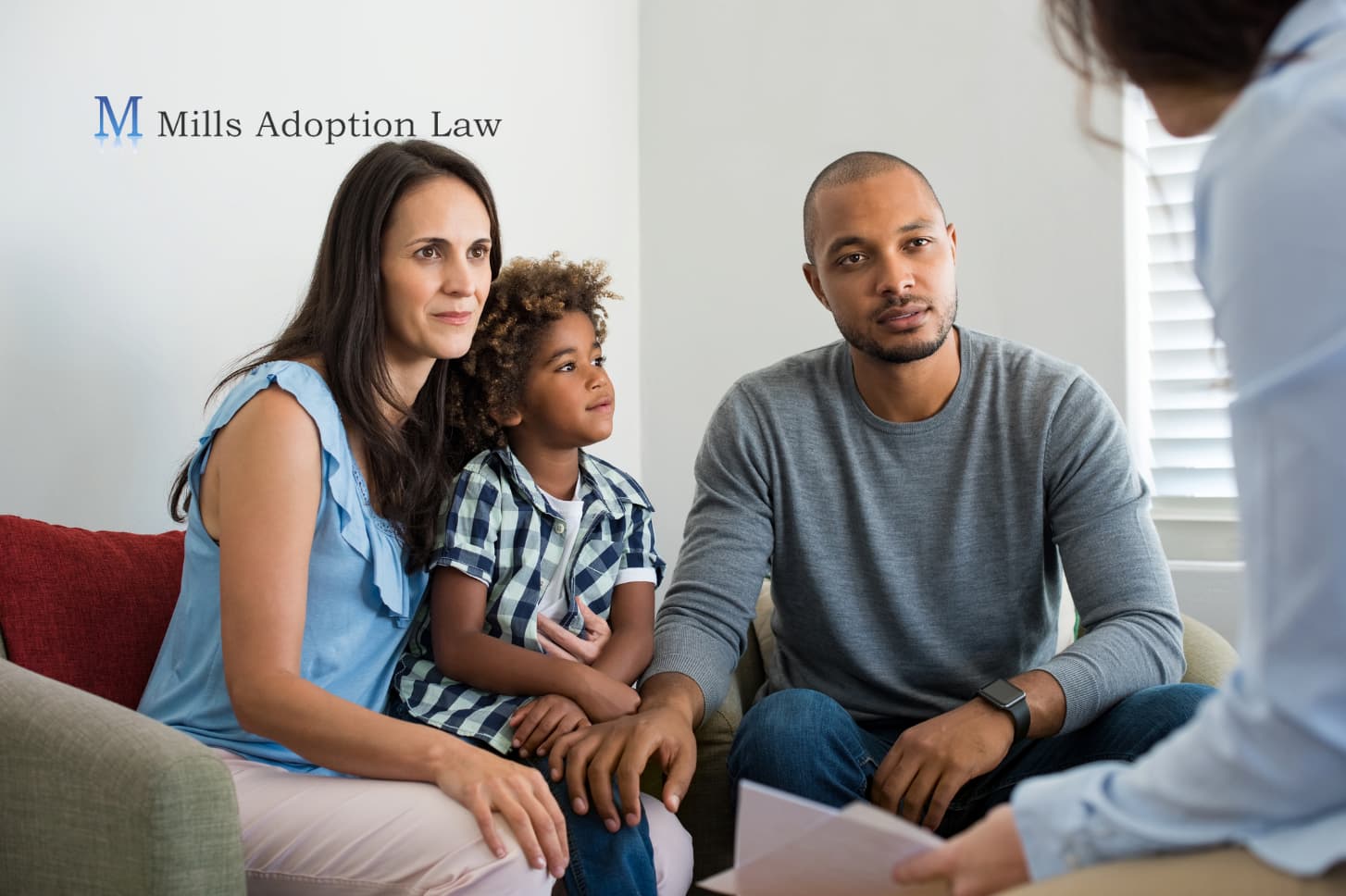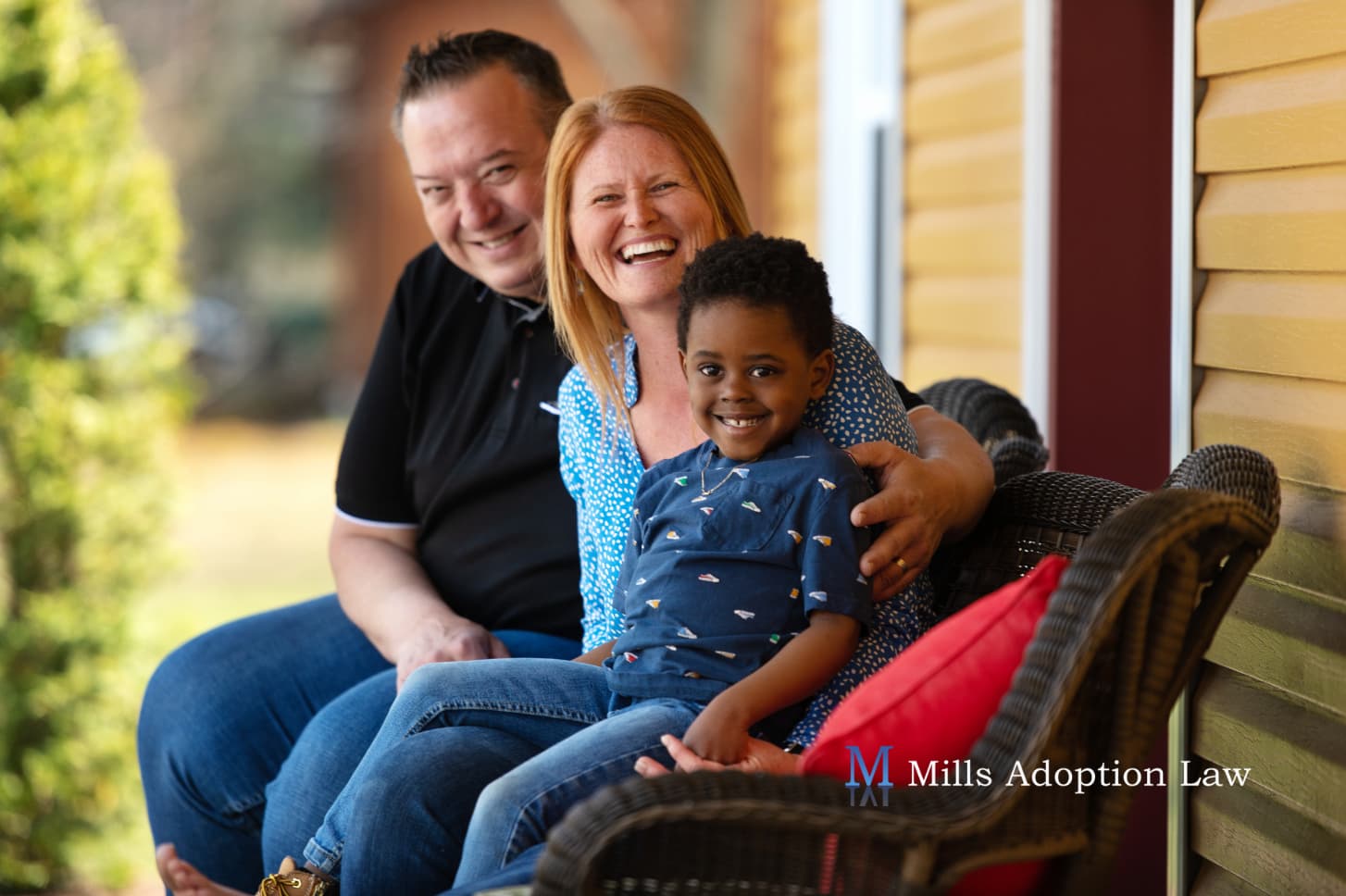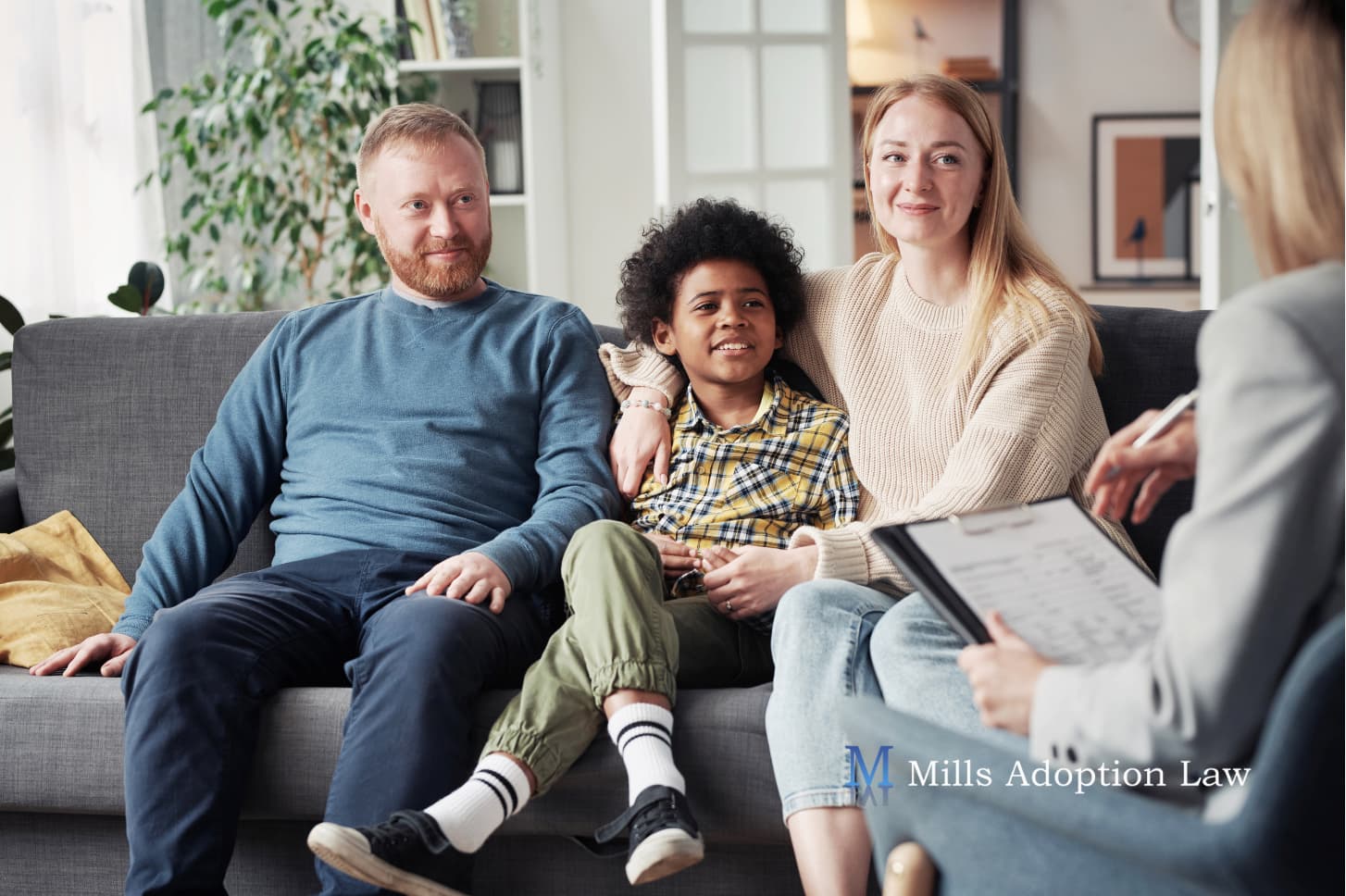Gay & LGBT Adoption
Schedule a Consultation TodayGay & LGBT Adoption
As a same sex married couple can we adopt a child?
If we are married, how do I establish my parental rights to my spouse’s child?
As a single gay person can I adopt a child?
Can I adopt my partner’s child when we are not married?
Married Couples Can Adopt Jointly
In North Carolina, same-sex couples in North Carolina can adopt children through the same processes, with the same requirements, as heterosexual couples.
Why should I adopt when my name is on the child’s birth certificate?
As an example, take the case of a same-sex female couple. Often the child is genetically related to one spouse and not to the other spouse. One spouse gives birth and the other spouse contributed the eggs used to conceive the child.
The North Carolina’s Vital Records office will list two married women on a birth certificate as parents. The birth certificate will provide sufficient authority for each spouse for routine parenting activities like interacting with school officials and health care providers.
The birth certificate alone will not provide sufficient protection for the child or the nongenetic parent. A birth certificate only creates a presumption of parentage. The presumption of parentage can be rebutted by evidence that only one spouse is genetically related to the child. Without more, the law only protects the parent with the genetic connection to the child.
Despite being identified as a parent on the child’s birth certificate, there is no legal protection for the relationship between the nongenetic parent and child. The child may not be able to inherit or receive social security benefits from the nongenetic parent. The child’s relationship with the nongenetic parent might not be protected if the spouses separate or divorce.
Adoption as a stepparent by the nongenetic parent is the best way to create enforceable legal rights as a parent. Creating a legal relationship establishes enforceable parental rights for the nongenetic parent. It also protects the child’s right to a relationship with the nongenetic parent in the event of a divorce or the death of the biological parent.
The Process.
Marriage & Cohabitation – North Carolina law requires that a couple be married and the nongenetic parent must live with the child for at least six months before filing a petition for adoption. If you lived together before getting married, that time will not count towards this requirement. There are exceptions to this rule.
Petition & Consents – The nongenetic parent files a petition to adopt. The genetic parent signs a consent and if the child is over the age of 12, the child must consent to the adoption.
Parental Rights of the Other Genetic Parent – We are required to address the parental rights of the other genetic parent. There are three ways to proceed. 1) Obtain the parent’s consent or an affidavit from a clinic attesting that a donor’s rights have been waived; 2) Serve the other parent with notice of the adoption. If the parent fails to object, proceed without him or her; or 3) File a petition for termination of parental rights if grounds exist.
Postplacement Reports – The court will require two visits by a social worker and a report to the court. Someone will come to your home and meet with you and then file a report.
Waiver of Postplacement Reports – When you have been married at least two years, the court has the discretion to waive the requirement for postplacement reports. This is accomplished by making an application by motion to the Clerk. It is entirely discretionary with the Clerk. Results will vary from county to county and case to case. To waive postplacement reports, the court requires FBI, SBI and local county criminal records checks for the petitioning parent.
The adoption process is complex and can vary depending on your situation. It’s critical to have an experienced adoption attorney on your side to help you navigate the process.
Second Parent Adoption by Unmarried Individuals
A true second-parent adoption is not available in North Carolina. A single person cannot adopt another person’s child without terminating that person’s parental rights. Two single individuals cannot adopt a child together in North Carolina.
Adoption by Single Individuals
Single individuals are permitted to adopt in North Carolina. Single individuals are subject to the same requirements as married couples.
North Carolina Same-sex Adoption Help
Bobby Mills has over 30 years’ experience in adoptions in North Carolina and can help you with your adoption. adoption. If you are a member of a non-traditional family and wish to adopt your partner’s child or have your partner adopt your child, please call us today at 919-533-4025 to set up a consultation.
Ask a Question,
Describe Your Situation,
Request a Consultation
Call (919) 306-2899 or fill out the short form below. We will usually respond within 1 business day but often do so the same day. Don’t hesitate, your questions are welcome.
We respect your privacy. The information you provide will be used to answer your question or to schedule an appointment if requested.
Why Choose Mills Adoption Law?
- Experience–Attorney Bobby Mills has over 35 years of experience representing birth parents, adoptive parents, and foster parents through all aspects of adoption and parental rights.
- Adoption Specialist–Other firms include adoption and parental rights as part of their larger family law practice areas. At Mills Adoption Law, we focus exclusively on adoption, parental rights, and foster parent rights.
- Board-Certified–Attorney Bobby Mills is a Fellow of the American Academy of Adoption & Assisted Reproductive Attorneys, certified by the board as a specialist in family law, and the former director of a child placement agency.
- Agency Attorney–At Mills Adoption Law, we also represent child placement agencies and their clients.
Want to Schedule a Consultation?
Schedule a Consultation TodayRelated Services
Experience Matters. Mills Adoption Law has helped our community for over 30 years with adoptions…
People often tell me, “I raised my stepdaughter and stepson like my own children. They…
Blended families are more common than ever. It is estimated the 1 in 3 Americans…
Interstate Adoption & ICPC When you adopt a child from another state, it is an…
Today, open adoptions are the most common type of adoptive relationship. In an open adoption…
When you and your family need a North Carolina adoption attorney for adopting children in…
A second-parent adoption allows a person, a “second parent,” to adopt a child without the…
Grandparents, Relatives, & Kinship Care Arrangements Many parents cannot provide proper care for their children.…
The international adoption process is complex and varies by country. Visit the US State Department…
Guardianships in North Carolina provide legal protection for minors who are orphans, have been abandoned,…
In most adoptions, the emphasis is placed on the mother for obvious reasons. The father…
Experience Matters. Mills Adoption Law has helped our community for over 30 years with adoptions…
independent adoption in north carolina If you have already found a match, an independent adoption…
Related Blogs & News

What Are the 7 Core Issues of Adoption in North Carolina?
Adoption is a meaningful way to grow a family, but there is no cookie-cutter answer…

What Is the Adoption Triad in North Carolina and Why Is It Important?
Adoption is an individualized process. There is no cookie-cutter answer that works for every family,…

7 Mistakes to Avoid When Adopting Out of State
Adopting out of state is exciting and emotional, but it’s also complex. No two adoptions…
Frequently Asked Questions
Faqs About LGBT Adoption
Below are some frequently asked questions about LGBT Adoption:
Can an LGBT adoption lawyer help with our adoption?
In North Carolina, same-sex married couples undergo the same adoption process as any other person or couple. Some private adoption agencies may have different rules that limit LGBT adoptions.
Having an experienced LGBT adoption attorney to guide you through the process is advisable. Mills Adoption Law has served the community for over 30 years as an experienced LGBT adoption lawyer.
Whether you are seeking assistance in a joint, stepparent, or individual adoption, you want an adoptions lawyer with experience.
What is second-parent adoption?
Second-parent adoption involves two single individuals adopting a child, and it is not permitted in North Carolina regardless of sexual orientation. Only married couples or single parents may adopt children in North Carolina.
Can I adopt my same-sex spouse’s biological child?
Yes. The rules for adopting a spouse’s biological child are the same regardless of the sexual orientation of the couple. However, you must have consent for the adoption from both of the child’s biological parents.
Mills Adoption Law has assisted clients in navigating these tricky waters for over three decades. We’ll be with you every step of the way.
How can I receive consent to adopt my spouse’s child when the other biological parent is a donor?
In nearly all situations, donors surrender any parental rights at the time of their donation. Check with the donor facility or reexamine your paperwork to determine if this was the case.
However, if the arrangement did not include a surrender of parental rights, you will need to seek the advice of an experienced LGBT lawyer. Mills Adoption Law offers a free 15-minute initial consultation.
Do I need an LGBT adoption lawyer to proceed with an adoption?
Retaining a lawyer is not required, but it is advisable to have an experienced LGBT adoption attorney assist you through the adoption process. Generally speaking, the laws are the same regardless of sexual orientation. However, the adoption process is complex, and errors can delay the process.
Moreover, there are, unfortunately, constant legal challenges to equality laws that legalized same-sex marriage and to the rights of members of the LGBT community. A skilled LGBT adoption attorney will help you avoid delays and pitfalls and keep you updated throughout the process.
Professional Associations
Why Should You Choose An Adoption Attorney?
An adoption attorney will:
Provide
We will provide an unbiased explanation of adoption procedures and develop a legally secure plan tailored to your needs.
Assess
We will assess the risks involved, including determining what payments are permissible and ensuring that birth parents are treated fairly and their rights are legally terminated before placement is finalized.
Clarify
We will clarify your options, if any, for post-placement arrangements with birth parents, making sure your interests and those of the child are served.

Explain
We will explain your rights and adoption laws in your state or refer you to attorneys who practice in other states or internationally.
Review
We will review and negotiate the adoption agency contract to protect your interests.
You Should...
Contact
You should contact an attorney as early as possible in the decision-making process.
Learn
Learn about the specific types of adoption services the attorney provides. Ask what percentage of the practice is dedicated to adoption and how many adoption proceedings the attorney has handled.
Choose
Choose an attorney who is experienced in the type of adoption you are considering.

Know
Know what the attorney charges, how fees are structured and that you can afford the services.
Ask
Ask questions, request references, share your concerns and provide the attorney with all relevant documents. Ask for a written retainer agreement that outlines what the attorney charges, how fees are structured and other details regarding fees and fee payment.

















